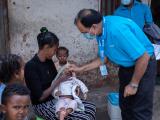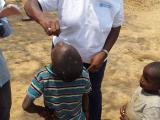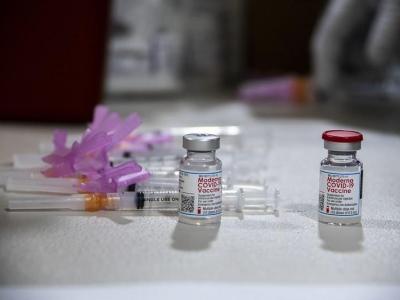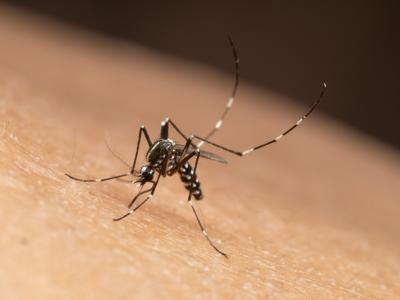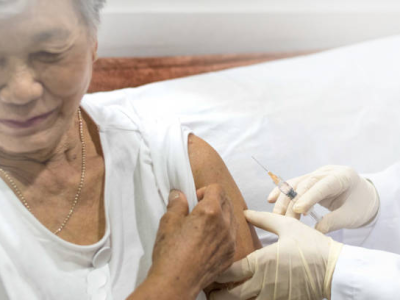Health groups tracking polio cases reported some glimmers of hope today in two hot spots—Afghanistan and Pakistan—but the news was tempered by notification that the disease has been detected in Cameroon again.
The current polio situations in Afghanistan and Pakistan were detailed in two separate articles today in Morbidity and Mortality Weekly Report (MMWR), while the first polio detection in Cameroon since 2009 was announced by the World Health Organization (WHO).
Pakistan, Afghanistan, and Nigeria are the three countries where the disease is still endemic, and polio immunization activities in all three have been hampered by either political conflict or pressure on parents from militant or religious groups to reject the vaccine for children. Ongoing polio circulation in those countries has led to an outbreak in war-torn Syria that threatens Europe and other countries in the region, as well as reintroductions in some African countries.
Trends in Pakistan, Afghanistan
However, both Pakistan and Afghanistan reported overall decreases in wild poliovirus (WPV) cases from January through September, compared with the same time period in 2012, the Centers for Disease Control and Prevention (CDC) said today in press release. It added that it will release a status report for Nigeria in December. The MMWR reports were written by polio officials at the WHO and virus and global health specialists at the CDC.
Afghanistan and Pakistan still struggle with reaching unvaccinated kids, with Afghanistan battling an outbreak in the Eastern region and Pakistan seeing case numbers increase in the conflict-ridden Federally Administered Tribal Areas and in Khyber Pakhtunkhwa province.
In Afghanistan, the number of cases is continuing a 3-year decline, with only nine cases reported so far this year. All were reported in the Eastern Region and were linked to the wild poliovirus circulating in Pakistan.
Also, in a promising development (first reported yesterday by the United Nations Children's Fund), the country reached a milestone: going 12 months without any cases in Kandahar and Helmand provinces, which have long been epicenters of the disease in Afghanistan, according to the CDC. The progress shows the effectiveness of the polio eradication programs in the country's Southern Region, the CDC said.
Meanwhile, polio cases in Pakistan have also dropped over the past 3 years, and cases through September this year ran slightly below the same time period for 2012 (52 versus 54). However, the identification of new cases since September will put the country over its 2012 total, the CDC said.
Tom Frieden, MD, MPH, CDC director, said in a statement that despite setbacks, global health groups are making progress toward polio eradication. "There is encouraging progress in Afghanistan, but, as long as transmission is uninterrupted in Pakistan and Nigeria, the risk for spread to other countries continues because polio anywhere presents a threat of polio everywhere."
First Cameroon cases since 2009
In other developments, two WPV type 1 (WPV-1) cases have been detected in Cameroon, the first such cases in the country since 2009, the WHO said today in a statement. The virus was isolated from two acute flaccid paralysis (AFP) patients in West region. The patients' symptoms began on Oct 1 and Oct 19, and genetic sequencing shows that the isolates' closest relatives are viruses last detected in neighboring Chad in 2011.
Health officials are finalizing an emergency outbreak response, including at least three national immunization days, the first of which was conducted in late October. Immunization planning is also underway for neighboring countries, especially Chad and the Central African Republic. The WHO also said plans include strengthening surveillance in the region to identify any gaps.
Cameroon has also reported four circulating vaccine-derived poliovirus type 2 (cVDPV2) cases in its Far North region, according to the WHO. The patients' paralysis symptoms began between May 9 and Aug 12, and the viruses were linked to circulation in Chad and were also detected in Nigeria and Niger. Those findings triggered large-scale immunization activities in August and September, as well as national immunization days in October.
The WHO said the developments confirm the risk of ongoing spread of a pathogen targeted for eradication. With the history of spread of polio from northern Nigeria across West and Central Africa and the presence of surveillance gaps, the risk of further international spread is high, the WHO said. It also urged countries, territories, and areas to maintain high routine immunization levels to protect against new virus introduction.
See also:
Nov 21 CDC press release
Nov 21 MMWR report on Afghanistan polio eradication progress
Nov 21 MMWR report on Pakistan polio eradication progress
Nov 21 WHO statement




